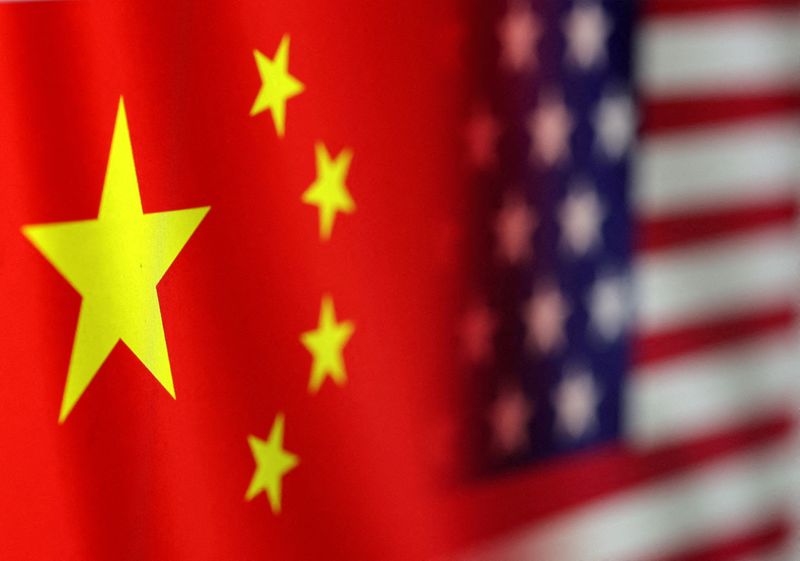By Alexandra Alper and Karen Freifeld
WASHINGTON (Reuters) -In its latest jab at Beijing, the U.S. will empower companies like Google and Microsoft (NASDAQ:MSFT) to act as gatekeepers worldwide for highly sought-after access to AI chips, two people familiar with the draft plan said.
Under the scheme, to be released as soon as this month, these companies would have to comply with strict requirements, including reporting key information to the U.S. government and blocking Chinese access to AI chips. That would permit them to offer artificial intelligence capabilities within the cloud overseas without a license, the sources said.
The new rules, some of whose details are being reported for the first time, show officials are scrambling in the waning days of the Biden administration to streamline the process for approving AI chip exports while also preventing bad actors from accessing them. The U.S. fears China could harness the power of AI to supercharge its military, unleash powerful cyber attacks or even train a bioweapon.
The Commerce Department declined to comment on the content and timing of the new regulations. Sources cautioned the administration's plans may change.
Alphabet (NASDAQ:GOOGL)'s Google and Microsoft did not immediately respond to requests for comment.
The measure takes a page from a national security agreement Microsoft inked with the U.S. government in April allowing it to provide AI technology to Emirati firm G42, the people said.
Under the new draft rules, other companies beyond those with gatekeeper status will compete for licenses to import a smaller number of high-end Nvidia (NASDAQ:NVDA) and AMD (NASDAQ:AMD) AI chips in each country, one of the sources said.
Nvidia, which makes the world's most powerful AI chips, said it is ready to work with the administration on the rules. AMD did not immediately respond to a request for comment.
Exempted from the caps would be 19 allied countries like the Netherlands and Japan plus Taiwan, which would have unlimited access to the AI chips or the capability they provide, two of the sources said.
Also outside the framework would be a list of nuclear embargoed countries, including Russia, China, Iran and Venezuela, which are already blocked from acquiring U.S. AI semiconductors and would remain so.
The caps could upset some countries, however.
Geoffrey Gertz, a former White House official now at the Center for a New American Security, said a global program of country caps "would likely raise significant concerns from U.S. partners and allies around the world, who are wary of the United States acting as a unilateral arbiter on who gets to access advanced chips critical for AI."
The U.S. government is conducting a final review of an "Artificial Intelligence Diffusion" rule drafted by the Commerce Department, according to a government posting this week, indicating it may be closing in on publication. Three sources said the posting referred to the AI caps.
The Information Technology Industry Council, an advocacy association whose members include AMD and Google, is concerned the Biden administration is rushing the complex rule out without industry input that could head off adverse consequences.
"If reports are accurate, such changes would dramatically expand the scope of export controls and have significant global implications," Naomi Wilson, the council's senior vice president of Asia and global trade policy, said in a statement.

The rules build on a program unveiled in September that gives permission to pre-approved data centers overseas to receive AI chips without a license, two sources said.
To achieve that status, data centers must provide information about customers, business activities, access restrictions and cybersecurity.